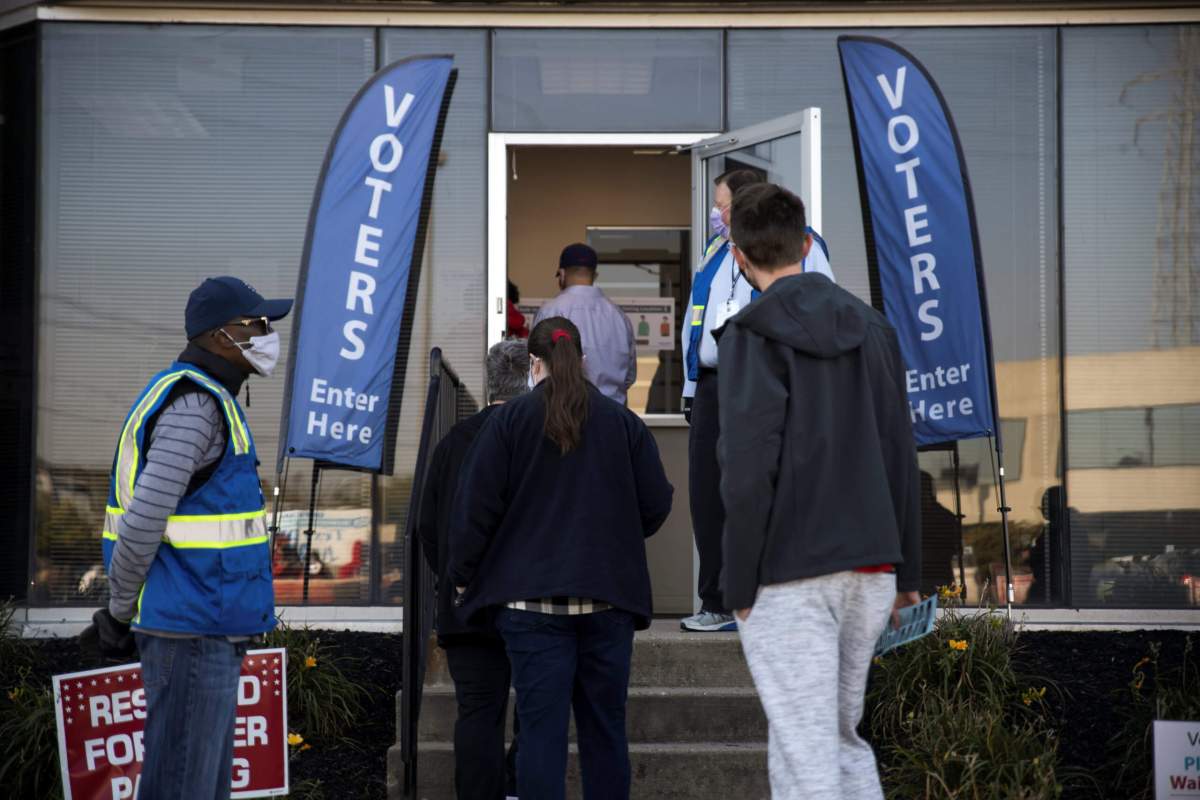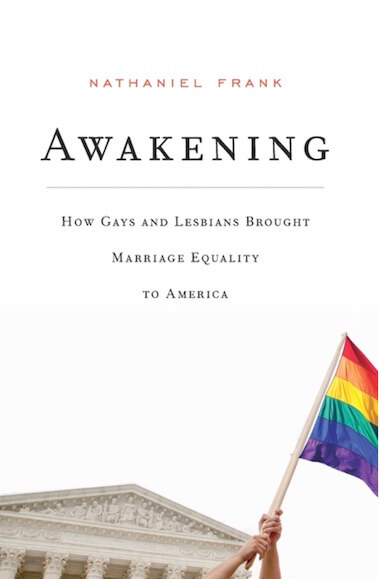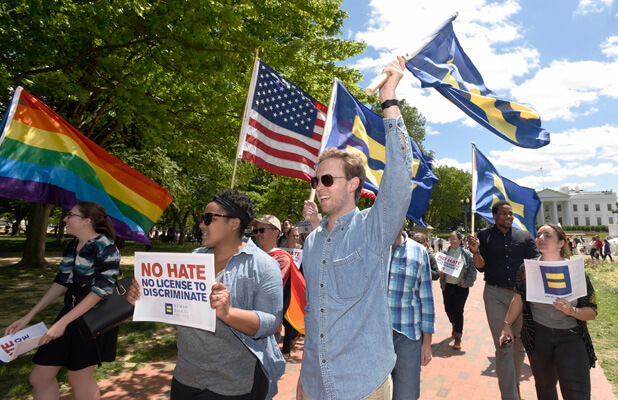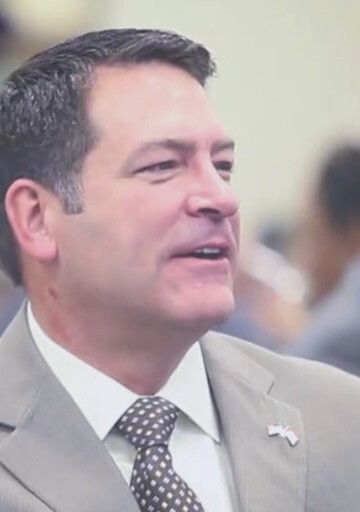An outright majority of Republicans across every key swing state admit they would tolerate a homophobic or transphobic candidate for public office, according to new polling conducted by the Human Rights Campaign and Hart Research Associates.
The poll, which featured responses from 400 likely voters per state across both parties in the crucial battleground states of Arizona, Florida, Georgia, Iowa, Michigan, North Carolina, Ohio, Pennsylvania, Texas, and Wisconsin, revealed a glimpse into voters’ stances on queer issues, the presidential race, and the Supreme Court in the weeks leading up to the pivotal November election.
The poll notably found that Republican voters in most of those states generally support LGBTQ issues by a slight majority, but the data importantly indicates that those voters will give a pass to bigots — and foreshadows the lengths that GOP voters will go to condone the re-election campaign of an incumbent president who has assailed LGBTQ rights on numerous fronts throughout his time in the White House.
Responses indicate Americans in battleground states support queer rights, but with key caveats about willingness to go to the mat
When Republicans were asked about their views regarding an anti-LGBTQ rights candidate, the results were very consistent: A majority of GOP voters in every swing state said it would make no difference to them whether a candidate harbors anti-LGBTQ views — and less than one-third of GOP voters in any of those states said they would be turned off by a candidate’s anti-LGBTQ positions.
Sixty-six percent of Florida Republicans said the anti-LGBTQ views of a candidate would make no difference to them, which topped the list, while Republicans in Texas were most forthright about their willingness to embrace a bigoted candidate. Sixteen percent of Lone Star State Republicans said they would not only tolerate anti-LGBTQ candidates, but would actually view them more favorably.
On the contrary, Democrats in every battleground state said they would view an anti-LGBTQ candidate less favorably and a plurality of independents in most of those states also said they would be turned off by such a candidate.
Furthermore, voters across the political spectrum were asked about the top issues on their minds heading into the 2020 election, and transgender issues stand among the lowest priorities. Voters in every battleground state, for example, said the issue of allowing trans athletes to participate in sports ranked last in the list of priorities. Jobs and the economy were the top issues, followed by healthcare and COVID-19.
At the same time, the data also showed that homophobia and transphobia are not necessarily winning strategies in those states. The general electorate in battleground states is LGBTQ-friendly, and candidates who support homophobic or transphobic policies do so at their own risk.
Support for the Equality Act — the legislation that would build on the June Supreme Court ruling on employment protections and expand comprehensive non-discrimination protections for LGBTQ folks — outweighs opposition across the board, while a majority of voters in swing states also support adoption rights for LGBTQ parents. A majority of voters in all of those state except North Carolina support same-sex marriage rights.
The poll found that most voters in those states, minus Iowa, also oppose banning transgender people from the military — a clear repudiation of President Donald Trump’s ban on trans service members — and a majority of voters in every battleground state with the exception of North Carolina oppose allowing business owners to deny service to LGBTQ people on the basis of religion.
Moreover, less than a third of voters in each of those states support either of those two anti-LGBTQ postures, further demonstrationg that Trump’s anti-LGBTQ policies primarily cater to a smaller base of religious conservatives who nonetheless continue to wield outsized influence in the GOP.
That is further evident in the polling numbers on trans issues. Voters are expressing strong support for trans rights, especially in healthcare — which is yet another area where the Trump administration has specifically targeted trans and non-binary Americans. Ninety-five percent of voters in Arizona, for example, believe trans people should have equal access to medical care as anyone else, and at least 75 percent of voters in every swing state said they believe trans people should be able to live freely and openly in accordance with their gender identity.

When examining Trump voters alone, at least 60 percent across all of those states support the rights of trans people to live openly and freely and 87 percent say trans folks should have equal access to medical care.
Following the death of Supreme Court Justice Ruth Bader Ginsburg, likely voters in Georgia, Iowa, North Carolina, Ohio, and Texas were asked whether the next Supreme Court justice should support LGBTQ rights, and a majority of voters in all but one of those states — Texas — agreed that the next justice should indeed support queer rights. Despite those numbers, Trump nominated Amy Coney Barrett, whose past indicates that she would pose a major threat to abortion rights, Obamacare, and LGBTQ rights. Her dog-whistle use of the term “sexual preference” in her Senate confirmation hearings today in response to questioning from California’s Dianne Feinstein about whether she shared the late Justice Antonin Scalia’s hostility to LGBTQ rights only compounded the view that she’s no community ally. It is possible that Trump’s 11th hour nominiation of could further mobilize voters against the president in the campaign’s waning days.
And yet, while the poll’s findings suggest Americans are supportive of queer rights, the sincerity of that support will remain in question as long as there are key exceptions: In this case, Republican voters in swing states have made it clear that they are indifferent about anti-LGBTQ candidates and overall voters in those states have relegated trans rights issues to the bottom of their list of priorities at the ballot box.
As Trump continues to trail in the polls, however, his anti-LGBTQ actions only serve to dampen his own re-election chances in battleground states where most voters support queer rights.
To sign up for the Gay City News email newsletter, visit gaycitynews.com/newsletter.



































